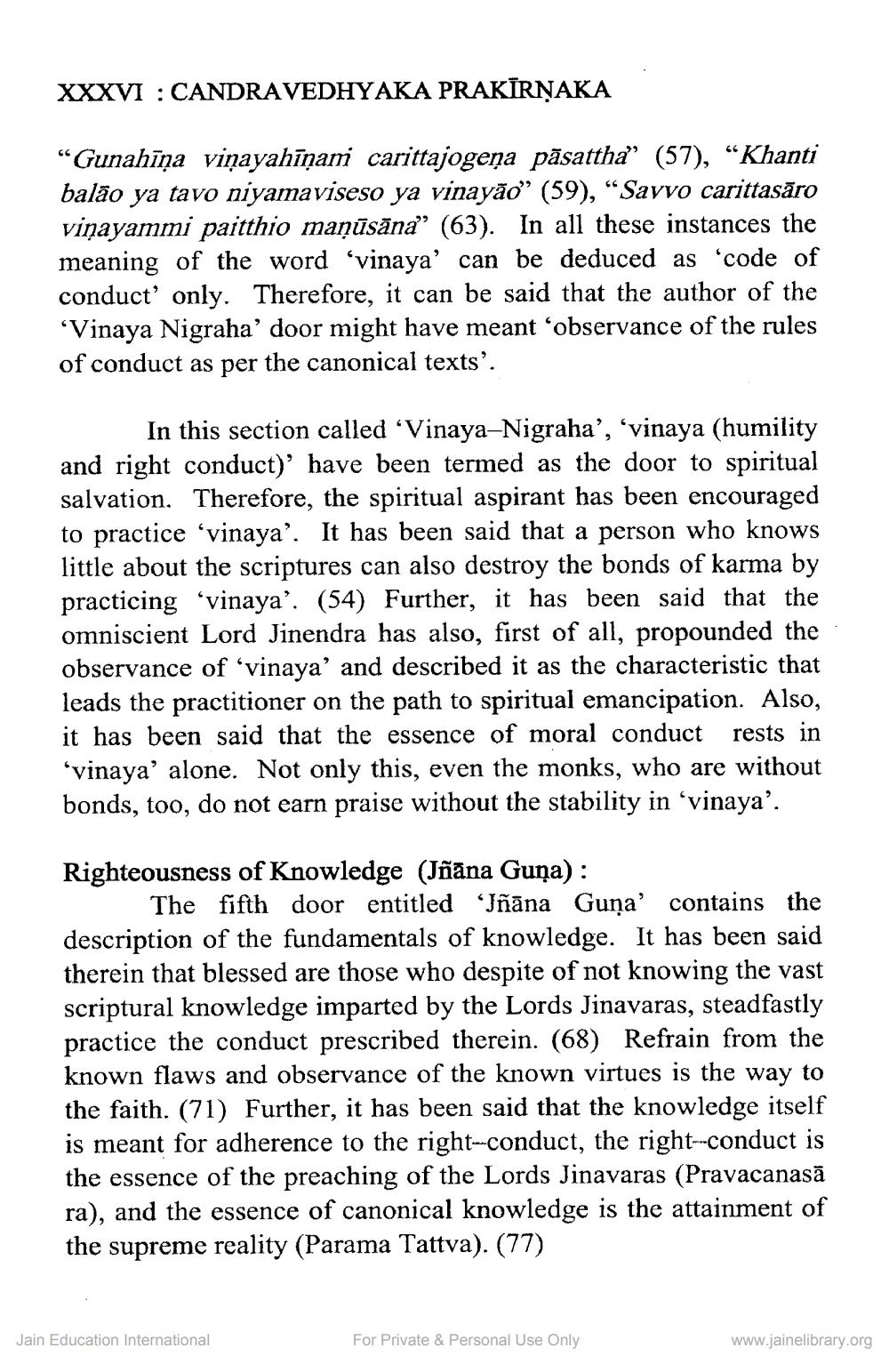________________
XXXVI : CANDRAVEDHYAKA PRAKĪRŅAKA
“Gunahīņa viņayahīņami carittajogeņa pāsattha” (57), “Khanti balão ya tavo niyamaviseso ya vinayão” (59), “Savvo carittasāro viņayammi paitthio maņāsāna” (63). In all these instances the meaning of the word 'vinaya' can be deduced as "code of conduct' only. Therefore, it can be said that the author of the ‘Vinaya Nigraha' door might have meant 'observance of the rules of conduct as per the canonical texts'.
In this section called 'Vinaya-Nigraha', 'vinaya (humility and right conduct)' have been termed as the door to spiritual salvation. Therefore, the spiritual aspirant has been encouraged to practice ‘vinaya'. It has been said that a person who knows little about the scriptures can also destroy the bonds of karma by practicing ‘vinaya'. (54) Further, it has been said that the omniscient Lord Jinendra has also, first of all, propounded the observance of 'vinaya’ and described it as the characteristic that leads the practitioner on the path to spiritual emancipation. Also, it has been said that the essence of moral conduct rests in 'vinaya' alone. Not only this, even the monks, who are without bonds, too, do not earn praise without the stability in ‘vinaya’.
Righteousness of Knowledge (Jñāna Guņa):
The fifth door entitled 'Iñāna Guņa' contains the description of the fundamentals of knowledge. It has been said therein that blessed are those who despite of not knowing the vast scriptural knowledge imparted by the Lords Jinavaras, steadfastly practice the conduct prescribed therein. (68) Refrain from the known flaws and observance of the known virtues is the way to the faith. (71) Further, it has been said that the knowledge itself is meant for adherence to the right-conduct, the right-conduct is the essence of the preaching of the Lords Jinavaras (Pravacanasā ra), and the essence of canonical knowledge is the attainment of the supreme reality (Parama Tattva). (77)
Jain Education International
For Private & Personal Use Only
www.jainelibrary.org




